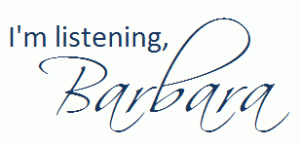We’re now about halfway through Spring 2010, and I see some students are still struggling with their blogs.
I promise that this blog assignment was not designed as 21st century version of a medieval torture device for you. Writing (and blogging) is a daily part of a PR practitioner’s life; I am helping you prepare for your careers. And the more you write, the better writer you will become.
Here are some of the frequently asked questions.
How was I supposed to know what to put in my blog? I feel so far behind.
Early in the semester, you were given your blogging guidelines for your class. All the information has been in there for nearly two months now.
Can I work ahead on my Topic of the Week?
I typically share the Topic of the Week for your class on Monday or Tuesday of the week it’s due.
If I am in more than one class with you, can I just do Topic of the Week for one of the classes and have it count for both?
No. The topics are different in each class.
If we didn’t have a reading assignment for a week or two, what should I do for Reading Notes for that week?
If you didn’t have an assignment, you don’t need to create notes.
How long do my Reading Notes have to be? I am spending hours outlining the chapters.
See the blogging guidelines.
How do I know which week we are in? You don’t have specific dates listed on your blog.
See your syllabus. Week One was our first week of class.
Where can I get ideas for my PR Connections?
Read PR blogs. Or subscribe to Ragan’s PR Daily. Or listen to a PR podcast.
What can I do to get more comments on my blog?
Buddy up with students in your class (or one of my other classes), and commit to commenting on each others’ blogs. If you’d like a “blog pal” from another university, let me know, and I can connect you.
Where can I find pictures to add to my blog (without getting into trouble)?
Go to Compfight, then choose “Only” next to Creative Commons. When you search for images that way, only ones that are okay to use will come up.
I’m still confused about how to track my blog comments. Can you go over that one more time?
See Tracking Your Blog Comments for Nixon’s Classes, originally posted on January 13. See Lisa McLaughlin’s blog for a great example of what I am looking for.
How do I make my picture/avatar show up when I leave comments on others’ blogs?






